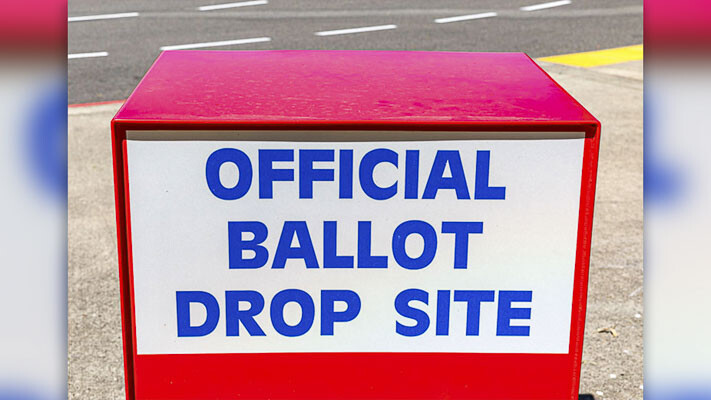
Far fewer people registered to vote in one state than there were ballots counted
Bob Unruh
WND News Center
American voters soon may be getting an answer to what happened to the 120,000 people in Pennsylvania who allegedly voted in the 2020 election, but now cannot be found.
The Thomas More Society explained that’s because a judge has ordered the Lycoming County Office of Voter Services to provide investigator Heather Honey with a digital copy of the cast vote record file.
That will have to include every precinct tabulator and central tabulator used in the 2020 election.
The fight developed because she experience anomalies while voting, and sought to find out what was going on.
Her “documented evidence showing that Pennsylvania’s 2020 general election results show that there were 120,000 less voters registered to vote in Pennsylvania than there were ballots counted,” the legal team explained.
“That’s 120,000 votes that cannot be legally attached to an actual voter,” said Thomas More Society special counsel Tom Breth.
The legal team said Honey has told the story of standing in line with her son, a newly registered voter at the time, to cast their ballots in the 2020 presidential general election.
“She related how an elder couple in line before them stepped up to vote. The man’s name was checked off on the numbered voter list and his ballot prepared, but his wife was told she could not vote as she had already voted via mail. The couple both insisted that the woman had not voted by mail, but she was only allowed to cast a provisional ballot without any assurance that her vote would be counted,” the team explained.
The disturbing incident piqued Honey’s curiosity. As an open-source investigator, she decided to apply those skills to determine how frequently that type of situation occurred, the legal team said.
Breth said, “The more that Ms. Honey learned, the more she came to believe that the Pennsylvania Department of State was giving guidance to election officials that was based on political reasons rather than the law. Honey observed that any activities that were purported to determine accuracy in the voting process were not based on Pennsylvania law, leading one to believe that these officials either don’t know what the law is, or they feel like they don’t have to follow it.”
The court ruling found that the Lycoming County cast vote record is not excepted from public access, as it is not “the contents of ballot boxes [or] voting machines” and ordered Lycoming County Voter Services to provide Honey with a printed copy of the cast vote record from the Lycoming County 2020 General Election.
Officials earlier had denied her requests for access to the election information.
Also read:
- Opinion: OIC tells consumers not to pay for ‘insurance’ you won’t likely benefit from: Does that include WA Cares?Elizabeth New (Hovde) of the Washington Policy Center believes you should consider yourself warned by the Office of the Insurance Commissioner about WA Cares and its maybe-only benefit.
- Opinion: Same road, different speed limit?Target Zero Manager Doug Dahl addresses a question about speed limit signs going into and leaving town.
- Progress being made at GRO Parade of Homes siteThe 2024 GRO Parade of Homes, presented by the Building Industry Association of Clark County, is a little more than a month away, and builders are busy completing the luxury homes before the big event, scheduled for Sept. 6 through 22 in Felida.
- Has trust in the media tanked over coverage of President Biden’s decline?After President Joe Biden’s calamitous debate performance against former President Donald Trump, and days after Biden’s decision Sunday not to seek reelection, there are still many questions about how the news media covered Biden’s mental and physical decline.
- Opinion: Hiding the growing cost of the Interstate Bridge replacementJoe Cortright of the City Observatory addresses the rising cost of the Interstate 5 Bridge replacement project.
- Letter: ‘This election I am NOT voting for Greg Cheney’Clark County resident Wynn Grcich shares her thoughts on Rep. Greg Cheney and the issue of fluoridation in area drinking water.
- Major gas line leak closes major arterial in Clark CountyFirefighters from Clark County Fire District 6 responded Thursday (July 25) afternoon to the scene of a major natural gas leak on NE 99th Street, directly in front of Columbia River High School.











